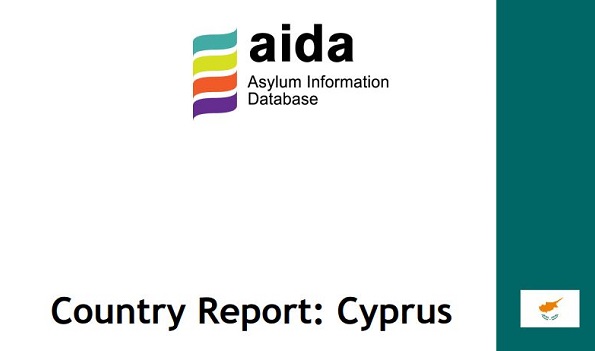The updated AIDA Country Report on Cyprus documents numerous legislative, policy and practice developments relating to the asylum procedure, reception conditions, detention of asylum seekers, and content of international protection.
Significant changes have been set in motion with respect to the asylum system in Cyprus during 2019 and early 2020. These changes, as well as proposed amendments, have been put in place as a result of the increasingly high numbers of arrivals to the country as well as reactions to the escalation of Covid-19. In particular, the conversion of an Emergency Reception Centre into a First Registration Reception Centre with an increased capacity is underway. The centre is intended to reach a capacity of approximately 800 persons however it currently has a capacity of 350-400. Since Covid-19 developments this centre is operating as a closed centre and is hosting around 700 persons. No time-limit to this de facto detention has been announced. Such practice appears to be in stark contrast to case-law developments in 2019 where the International Protection Administrative Court of Cyprus has annulled detention decisions on the basis that there had been a lack of examination of alternative measures to detention and an absence of a proportionality and necessity examination prior to ordering the detention.
Alongside these developments, the Civil Registry and Migration Department ceased issuing residence permits for family members regardless if they qualify individually as refugees, leaving family members, including underage children, without status and full access to rights. Moreover, family reunification procedures in 2019 became exceptionally cumbersome with the Civil Registry and Migration Department requesting all applicants, including refugees who applied within three months of receiving refugee status and refugees who had already received a positive decision on the family reunification request, to provide evidence that they have stable and regular resources which are sufficient to maintain the refugee and family members without recourse to the social assistance system of the Republic.
Lastly, a shift in the provision of health care services in Cyprus to a National Health System has left many asylum seekers and medical staff confused about asylum seekers’ rights to health care. In various instances across Cyprus, persons were denied access to treatment in the hospital, appointments were cancelled and access to particular medicine was restricted.
Please note that this report has been written prior to the outbreak of COVID-19. Subsequently measures have been taken that affect access to the asylum procedure for newly arrived asylum seekers. These measures only figure briefly throughout the AIDA report. However, an overview can be found at the start of the section ‘Overview of the main changes since the previous report update’.
*This information was first published by AIDA managed by ECRE.
This article appeared in the ECRE Weekly Bulletin . You can subscribe to the Weekly Bulletin here.

